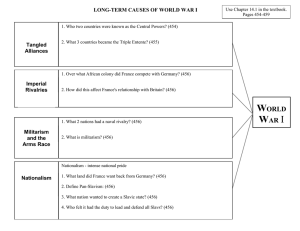• “This book is not about the decline of... everyone else.” P.1
advertisement
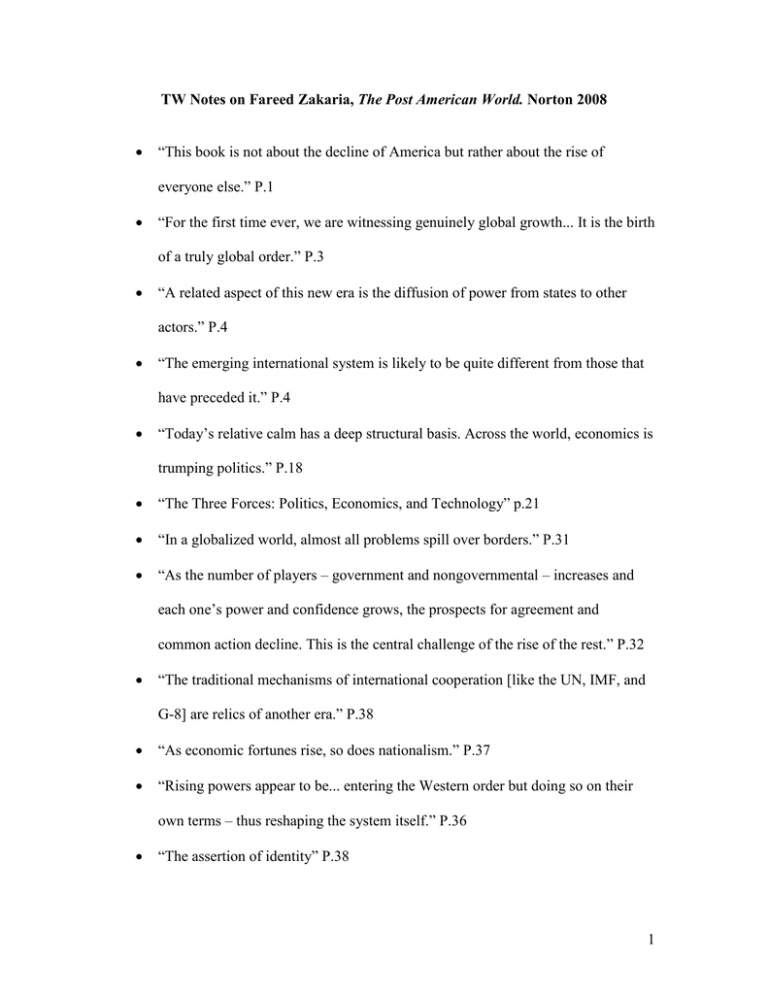
TW Notes on Fareed Zakaria, The Post American World. Norton 2008 • “This book is not about the decline of America but rather about the rise of everyone else.” P.1 • “For the first time ever, we are witnessing genuinely global growth... It is the birth of a truly global order.” P.3 • “A related aspect of this new era is the diffusion of power from states to other actors.” P.4 • “The emerging international system is likely to be quite different from those that have preceded it.” P.4 • “Today’s relative calm has a deep structural basis. Across the world, economics is trumping politics.” P.18 • “The Three Forces: Politics, Economics, and Technology” p.21 • “In a globalized world, almost all problems spill over borders.” P.31 • “As the number of players – government and nongovernmental – increases and each one’s power and confidence grows, the prospects for agreement and common action decline. This is the central challenge of the rise of the rest.” P.32 • “The traditional mechanisms of international cooperation [like the UN, IMF, and G-8] are relics of another era.” P.38 • “As economic fortunes rise, so does nationalism.” P.37 • “Rising powers appear to be... entering the Western order but doing so on their own terms – thus reshaping the system itself.” P.36 • “The assertion of identity” P.38 1 • “As power becomes diversified and diffused, legitimacy becomes even more important – because it is the only way to appeal to all the disparate actors on the world stage.” P.39 • “Some American [such as multinational businesses and universities] have become actually conscious of the changing world.” P.45 • “But this outward orientation is not yet common in American society more broadly.” P.46 • “Washington, D.C., has become a bubble, smug and out of touch with the world outside.” P.47 • “The United States succeeded in its great and historic mission – it globalized the world. But along the way... it forgot to globalize itself.” P.48 • “A powerful trend [is] the growth of new narratives.” P.83 • “To speak of the ‘rise of Asia’ misses the point. There is no such thing in Asia, which is really a Western construct.” P.86 • “Beijing is negotiating the same two forces that are defining the post-American world more broadly – globalization and nationalism... The stability and peace of the post-American world will depend, in large measure, on the balance that china strikes between these forces of integration and disintegration.” P.88 • “Beijing has much less knowledge and control of the rest of China than it would like and than outsiders recognize.” Pp.94-95 • “Decentralized development is now the defining reality of economic, and increasingly, political life in China.” P.95 2 • “The greatest problem China faces going forward... is the risk its government will lose the ability to hold things together.” Pp.98-99. • “China is below the threshold for democratic transition.” P.100 • “In 2006 and 2007, Chinese television ran a twelve-part series, The Rise of the Great Nations... The basic message of the series is that a nation’s path to greatness lies in its economic prowess and that militarism, empire, and aggression lead to a dead end.” Pp.106-107. • “The path to power is through markets, not empires.” P.108 • “The veneration of an abstract idea is somewhat alien to China’s practical mindset. Social relations and trust are far more important than paper commitments... [They] place less stock in rules, laws, and contracts. Their sense of either is more situational.” P.112 • “China views itself as a nation intent on rising peacefully...” P.114 • “[However] throughout history, great powers have seen themselves having the best incentives but being forced by necessity to act to expand their ever expanding interests... Some China watchers worry that in time power will go to China’s head.” P.115 • He is critical of some of China’s activities in Africa, arguing that it has been giving bad regimes a lifeline. • “China has been more skillful and used better diplomacy and soft power in Asia.” P.119 • In recent polls the public in traditional US allies, Indonesia and Thailand, indicated they trusted China more than the US to wield global power. 3 • “Beijing has become remarkably adept at using its political and economic muscle in a patient, low-key, and highly effective manner. Its diplomacy now emphasizes a long-term perspective, a non-preachy attitude, and strategic decision making that isn’t bogged down by internal opposition or bureaucratic paralysis... Having long avoided multilateral associations, it more recently has gotten involved in as many as possible.” P.121 • “Having abandoned communism, the Communist Party has been using nationalism as the glue that keeps China together, and modern Chinese nationalism is defined in large part by its hostility toward Japan... Beijing has more recently toned down its support of nationalism.” P.122 • “The reality of a globalized world forces America and China into an alliance that pure geopolitics could never countenance.” P.125 • In his chapter on American power he argues “Higher education is America’s best industry.” P.190 • “For decades, American workers had one enormous advantage over all other workers: privileged access to American capital... That special access is gone. The world is swimming in capital.” P.209 • “The United States has a history of worrying about losing its edge.” P.210 • Examples are Sputnik, the oil shock in the 1970s, and the rise of Japan in the 1980s. These fears didn’t come true because “the American system was proved to be flexible, resourceful, and resilient, able to correct its mistakes and shift its attention. A focus on American economic decline ended up preventing it.” P.211 4 • “There are fewer and fewer moderates on either side – and the result is gridlock.” P.212 • “To foreigners, American officials seem clueless about the world they are supposed to be running.” P.226 • “The task for today is to construct a new approach for a new era... ‘in which power is more diffuse.’” P.236 • “The United States does not have the hand it had in 1945 or even 2000. still, it does have a stronger hand than anyone else.” P.231 • “The international order established by the United States after World War II is in urgent need of expansion and repair; but not reconception.” P.232 • He argues that the US could play the valuable role of honest broker that Bismarck’s Germany briefly played in Europe in the late 19th century. • “This new role is quite different from the traditional superpower role. It involves consultation, cooperation, and compromise. It derives its power by setting the agenda, defining the issues, and mobilizing coalitions.” P.233 • “China... will have to be given some substantial political and even military space commensurate with [its rising] power. At the same time, its rise should not become a cover for expansionism, aggression, or disruption. How to strike this balance – deterring China, on the one hand, accommodating its legitimate growth on the other – is the central strategic challenge for American diplomacy.” P.236 • “The United States has every kind of power in apple supply these days except one: legitimacy.” P.247 • “Openness is America’s greatest strength.” P.257 5
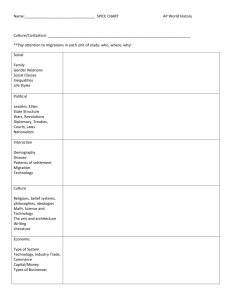
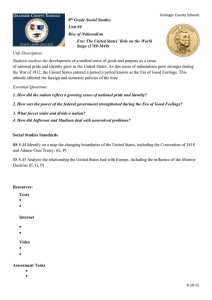

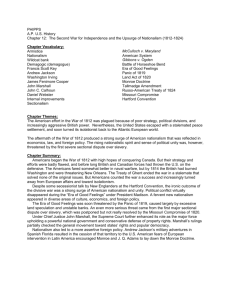
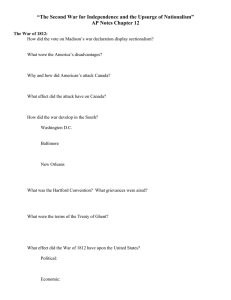
![“The Progress of invention is really a threat [to monarchy]. Whenever](http://s2.studylib.net/store/data/005328855_1-dcf2226918c1b7efad661cb19485529d-300x300.png)

